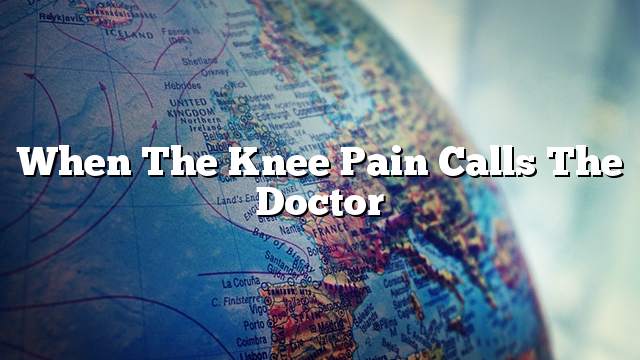The knee is a common medical symptom for all ages. Sports injuries and knee friction are the most common causes, and knee pain usually responds to analgesics and anti-irritants.
What causes knee pain?
- Injuries in ligaments and cartilage.
- Bruising or fractures in the bones.
- Friction (reconstruction, roughness) in the knee joint or knee joint.
- The presence of health diseases, some of which affect the knee as gout and some diseases of rheumatism.
- Irritation of tendons and membranes surrounding the knee.
- Bacterial knee inflammation which requires rapid medical intervention.
- The presence of a tumor in the bones forming the knee or surrounding tissue.
what is the cure ?
The treatment of the knee pain depends on the reason and the correct diagnosis before starting treatment, and the means of treatment:
- Comforts.
- Analgesics to relieve the symptoms of pain and anti – irritants.
- Exercise.
- Physiotherapy and rehabilitation.
- Cold and cold compresses by cause and stage of disease.
- Knee cleaning and antibiotics in cases of bacterial infections.
- The needles inside the knee joint There are several types of needles proved successful and depends on the type of needles on the stage of disease and cause and not suitable needles in all diseases.
- Cartilage and tissue supplements are taken in the form of pills.
- Surgical procedures such as knee arthroscopy and knee joint replacement.
When does a knee call your doctor?
- The inability to press the lower limb when walking or standing.
- Significant loss of knee movement.
- The presence of severe knee pain continues despite immobility.
- Knee instability and knee instability.
- The presence of deformity in the shape of the knee.
- Redness and thickness around the knee.
- High fever in the knee pain or rapid loss of weight is not justified.
- Excessive swelling of the knee.
- The presence of pain and swelling of the leg under the knee or the risk.
- The pain continues for a period of time despite taking the painkillers.
- Having a closure in the knee movement.
